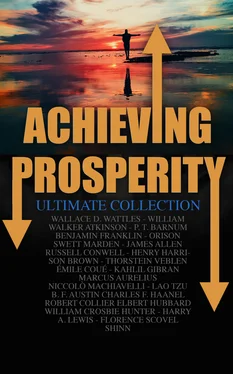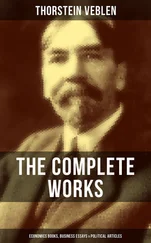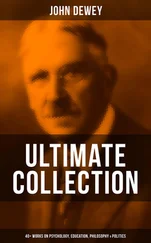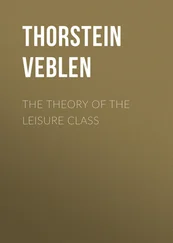Cocoa is “extended” with sugar, starch, flour, iron-rust, Venetian-red, grease, and various earths. But it is believed by pretty good authority that the American-made preparations of cocoa are nearly or quite pure. Even if they are not the whole bean can be used instead.
Butter and lard have one tenth, and sometimes even one-quarter, of water mixed up in them. It is easy to find this out by melting a sample before the fire and putting it away to cool, when the humbug appears by the grease going up, and the water, perhaps turbid with whey, settling below.
Honey is humbugged with sugar or molasses. Sugar is not often sanded as the old stories have it. Fine white sugar is sometimes floured pretty well; and brown sugar is sometimes made of a portion of good sugar with a cheaper kind mixed in. Inferior brown sugars are often full of a certain crab-like animalcule or minute bug, often visible without a microscope, in water where the sugar is dissolved. It is believed that this pleasing insect sometimes gets into the skin, and produces a kind of itch. I do not believe there is much danger of adulteration in good loaf or crushed white sugar, or good granulated or brown sugar.
Pepper is mixed with fine dust, dirt, linseed-meal, ground rice, or mustard and wheat-flour; ginger, with wheat flour colored by turmeric and reinforced by cayenne. Cinnamon is sometimes not present at all in what is so called—the stuff being the inferior and cheaper cassia bark; sometimes it is only part cassia; sometimes the humbug part of it is flour and ochre. Cayenne-pepper is mixed with corn-meal and salt, Venetian-red, mustard, brickdust, fine sawdust, and red-lead. Mustard with flour and turmeric. Confectionery is often poisoned with Prussian-blue, Antwerp-blue, gamboge, ultramarine, chrome yellow, red-lead, white-lead, vermilion, Brunswick-green, and Scheele’s green, or arsenite of copper! Never buy any confectionery that is colored or painted. Vinegar is made of whisky, or of oil of vitriol. Pickles have verdigris in them to make them a pretty green. “Pretty green” he must be who will eat bought pickles! Preserved fruits often have verdigris in them, too.
An awful list! Imagine a meal of such bewitched food, where the actual articles are named. “Take some of the alum bread.” “Have a cup of pea-soup and chicory-coffee?” “I’ll trouble you for the oil-of-vitriol, if you please.” “Have some sawdust on your meat, or do you prefer this flour and turmeric mustard?” “A piece of this verdigris-preserve gooseberry pie, Madam?” “Won’t you put a few more sugar-bugs in your ash-leaf tea?” “Do you prefer black tea, or Prussian-blue tea?” “Do you like your tea with swill-milk, or without?”
I have not left myself space to speak of the tricks played by the druggists and the liquor-dealers; but I propose to devote another chapter exclusively to the adulteration of liquors in this country. It is a subject so fearful and so important that nothing less than a chapter can do it justice. I must now end with a story or two and a suggestion or two.
Old Colonel P. sold much whisky; and his manner was to sell by sample out of a pure barrel over night, at a marvelous cheap rate, and then to “rectify” before morning, under pretence of coopering and marking. Certain persons having a grudge against the Colonel, once made an arrangement with a carman, who executed their plan, thus:—He went to the Colonel, and asked to see whisky. The jolly old fellow took him down stairs and showed him a great cellar full. Carman samples a barrel. “Fust rate, Colonel, how d’ye sell it?” Colonel names his price on the rectified basis. “Well, Colonel, how much yer got?” “So many barrels—two or three hundred.” “Colonel, here’s your money. I’ll take the lot.” “All right,” says Colonel P.; “there’s some coopering to be done on it; some of the hoops and heads are a very little loose. You shall have it all in the morning.” “No, colonel, we’ll roll it right out this minnit! My trucks are up there, all ready.” And, sure enough, he had a string of a dozen or more brigaded in the street. The Colonel was sadly dumbfounded; he turned several colors—red mostly—stammered, made excuses. It was no go, the whisky was the customer’s, and the game was up. The humbugged old humbug finally “came down,” and bought his man off by paying him several hundred dollars.
There is a much older and better known story about a grocer who was a deacon, and who was heard to call down stairs before breakfast, to his clerk: “John, have you watered the rum?” “Yes, Sir.” “And sanded the sugar?” “Yes, Sir.” “And dusted the pepper?” “Yes, Sir.” “And chicoried the coffee?” “Yes, Sir.” “Then come up to prayers.” Let us hope that the grocers of the present day, while they adulterate less, do not pray less.
Between 1851 and 1854, Mr. Wakley of the “London Lancet” gave an awful roasting to the adulteration-interest in London. He employed an able analyzer, who began by going about without telling what he was at; and buying a great number of samples of all kinds of food, drugs, etc., at a great number of shops. Then he analyzed them; and when he found humbug in any sample, he published the facts, and the seller’s name and place of business. It may be imagined what a terrible row this kicked up. Very numerous and violent threats were made; but the “Lancet,” was never once sued by any of the aggrieved, for it had told the truth.
Perhaps some discouraged reader may ask, What can I eat? Well, I don’t pretend to direct people’s diet. Ask your doctor, if you can’t find out. But I will suggest that there are a few things that can’t be adulterated. You can’t adulterate an egg, nor an oyster, nor an apple, nor a potato, nor a salt codfish; and if they are spoiled they will notify you themselves! and when good, they are all good healthy food. In short, one good safeguard is, to use, as far as you can, things with their life in them when you buy them, whether vegetable or animal. The next best rule against these adulteration-humbugs is, to buy goods crude instead of manufactured; coffee, and pepper, and spices, etc., whole instead of ground, for instance. Thus, though you give more work, you buy purity with it. And lastly, there are various chemical processes, and the microscope, to detect adulterations; and milk, in particular, may always be tested by a lactometer,—a simple little instrument which the milkmen use, which costs a few shillings, and which tells the story in an instant. It is a glass bulb, with a stem above and a scale on it, and a weight below. In good average milk, at sixty degrees of heat, the lactometer floats at twenty on its scale; and in poorer milk, at from that figure down. If it floats at fifteen, the milk is one-fourth water; if at ten, one half.
It would be a wonderful thing for mankind if some philosophic Yankee would contrive some kind of “ometer” that would measure the infusion of humbug in anything. A “Humbugometer” he might call it. I would warrant him a good sale.
Table of Contents
ADULTERATIONS IN DRINKS.—RIDING HOME ON YOUR WINE-BARREL.—LIST OF THINGS TO MAKE RUM.—THINGS TO COLOR IT WITH.—CANAL-BOAT HASH.—ENGLISH ADULTERATION LAW.—EFFECTS OF DRUGS USED.—HOW TO USE THEM.—BUYING LIQUORS UNDER THE CUSTOM-HOUSE LOCK.—A HOMOEOPATHIC DOSE.
As long as the people of the United States tipple down rum and other liquors at the rate of a good deal more than one hundred million gallons a year, besides what is imported and what is called imported—as long as they pay for their tippling a good deal more than fifty millions, and probably over a hundred millions of dollars a year—so long it will be a great object to manufacture false liquors, and sell them at the price of true ones. When liquor of good quality costs from four to fifteen dollars a gallon, and an imitation can be had that tastes just as good, and has just as much “jizm” in it,—and probably a good deal more,—for from twenty-five cents to one dollar a gallon, somebody will surely make and sell that imitation.
Читать дальше












